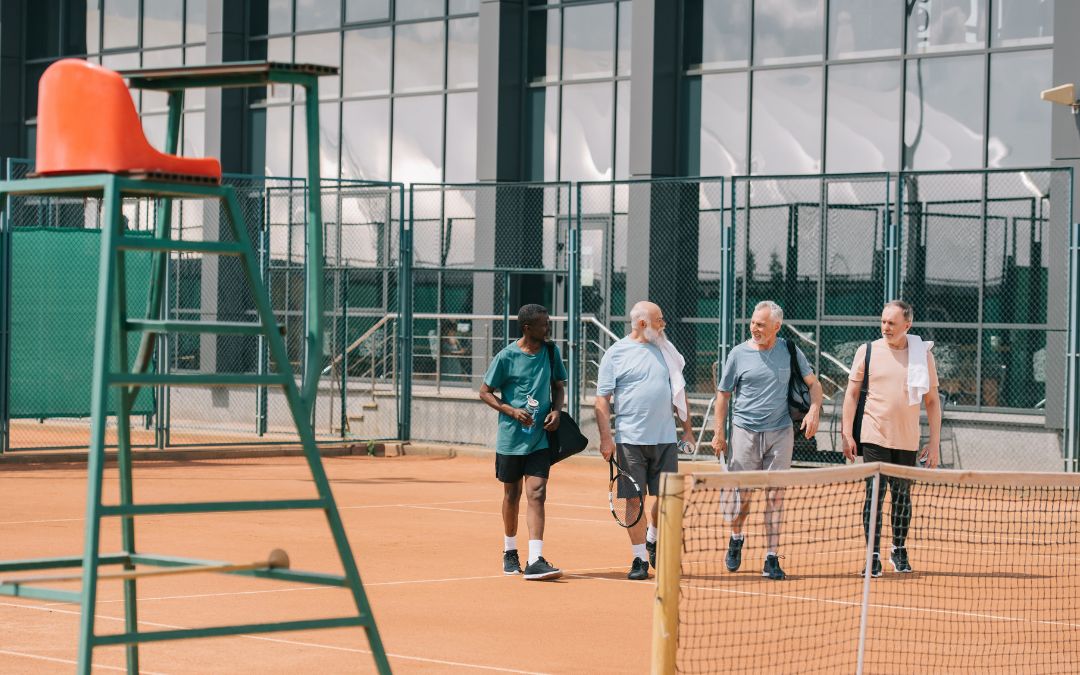A recent Forbes article highlighted the new image of the solo ager, and how the senior housing industry is adapting along with this generation. However, as we evolve in society, with baby boomers coming into retirement age, our perceptions shift as well. Communities must reflect the unique needs of the fast-growing boomer population. Moreover, while the term solo ager might hint at solitude, on the contrary, they crave and engage with their community even more. Read on for a glimpse into the solo ager population, how housing is transforming to fit their personalities and why community is the foundation.
The New Solo Ager
The picture of retirement isn’t a silver-haired couple on a porch drinking iced-tea surrounded by grandkids (or insert whichever cliché you’d like). It’s different for everyone, and that’s what the solo aging movement is all about—knowing that getting older isn’t a linear path. Baby boomers came of age in a tumultuous period. Women had access to legal birth control and both sexes felt more confident choosing other life paths rather than the traditional nuclear family. Which means the older generation might not have children, close family or be in committed relationships as they approach retirement.
What’s truly interesting is that the senior housing industry is adapting to meet the preferences of the solo ager. At Vineyard, we are proud to be on the forefront, disrupting the status quo to provide communities that fit every unique need.
Redefining Aging
Our society and culture have taken steps to no longer marginalize the older population but rather understand them as one of our largest demographics in this country. Some earlier studies labeled upcoming baby boomer shift as “elder orphans.” However, it’s much more accurate to subscribe to the solo aging concept.
For example, look to author Sara Geber’s refreshing take on the movement. “If you are single with a child or children from whom you are estranged, you are a solo ager as well. Another term being bandied about for this phenomenon is ‘elder orphan,’ but I prefer solo ager. Join the tribe!”
Dr. Francine Toder spoke to HuffPost about the positive aging movement and how cities and communities support it. “By providing culturally enriched programming involving seniors, in an environment that appreciates and values its older residents, age-friendly cities position themselves to welcome new retirees looking for a good quality of life as they age. This is a win-win for everyone.” Researchers are even undertaking new studies to better understand how to “successfully age.”
Shifting Landscapes of Senior Housing
Now that our culture and perception is shifting concurrently with the pro-aging movement, new dynamic communities, like Vineyard, cater towards solo agers. These communities include options such as:
- Foodie-friendly kitchens that treat cooking and eating as an experience, rather than just a necessity.
- Innovative activities with a strong focus on individual benefits for each resident.
- Intergenerational programming that pairs older adults with children or young adults, which recent studies have shown provide extensive wisdom-generating opportunities for both old and young.
- Wellness workshops to embrace a positive mindset along with physical health.
The Benefits of Community for Solo Agers
As we age, friendships become even more important to our mental wellness. Recent studies, profiled by Psychology Today, show that getting support—whether it be from family, spouses or friends—is a strong indicator of happiness and increases overall well-being. Which is why community is an integral aspect for solo-aging lifestyle. Whether it be from relationships with neighbors or your roommates themselves.
With the solo ager, even if you have a spouse, your paths may diverge. As Geber explains: “I am married and when I talk about solo aging, many people ask how a married person can consider herself a ‘solo’ anything. I tell them that unless my husband and I get hit by the same bus, one of us is going to end up alone, so we should both plan for the unknowable future.”
As we reconfigure the traditional setting (husband and wife, or single) senior living communities cater to living arrangements by offering unique floor plans. For instance, a two-bedroom, two-bath apartment can allow for friends or even siblings to live together but still have a healthy amount of space. The Forbes profile referred to this as “roommate style living à la The Golden Girls.”
Solo Aging and Embracing Community
Solo agers are an empowered new generation that can’t be fit into a box and aren’t quietly retiring to “a home” to read and knit. Instead, they’re independent, health-focused and rightly-so require active and lively communities to live in. As we reject outdated notions of what it means to get older, solo agers forge a path forward. We’re excited to be a part of the movement and develop alongside them.

